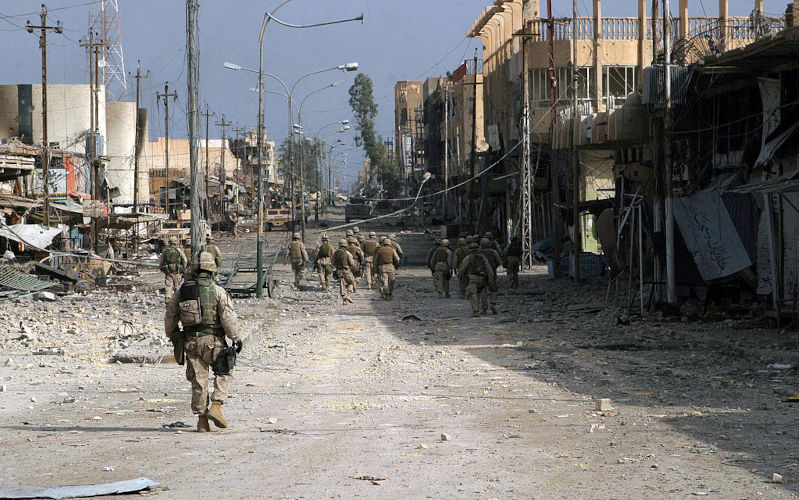The release of the 2003 Iraq War cabinet papers and what we were not told
January 6, 2025
We are constantly assured that our governments don’t lie. But in this case the enormity goes beyond a mere cover-up to protect deemed “national security”. That war was a lie from beginning to end.
In fact, the actions in 2003-04 endangered our national security for decades as did other acts of ill-considered military intervention, for example Vietnam, Iraq and Afghanistan Then and now, all kinds of devious acts are perpetrated in our name as being justified in the national interest. Without more transparency neither we nor the public would know. Take for example the bugging of the Timor Leste cabinet discussions, not for national security, but to protect the private interests of certain local investors which apparently justified prosecuting a government whistleblower for telling the truth.
A current matter is that concerning the detention of a former US pilot, now an Australian citizen, for providing professional aviation training to Chinese personnel in South Africa, involving relatively elderly aircraft about which China would already know heaps. Apparently, that activity justifies the pilot being locked up in solitary confinement pending the outcome of the US’ request for his extradition. To ram it home, the authorities have denied him access to his wife and kids for months keeping them in deadly silence all the while. That kind of inhumanity was perpetrated for US interests alone which haven’t been disclosed for public appraisal. Meanwhile the pilot hasn’t been advised of the specific charge which is an essential factor for challenging extradition at the behest of a foreign country where the alleged overseas offence must be equivalent to an existing Australian offence which is not the case. An unexplained cloak of secrecy has been thrown over these actions without regard for the rights of the pilot. Such laws worthy of a police state are loaded against the individual.
Returning to Australia and Iraq in 2004, compounding the deviousness of the intended deployment, the Howard Government at the time gave multiple assurances about Iraq’s possession of weapons of mass destruction. Then, and since, Howard confesses that in this respect he regrets that he was wrong, but in any case asserts that the late Saddam Hussain, then the Iraqi President, possessed weapons that could do some damage like those of any tinpot dictator. But did that alone justify a major war, all guns blazing, along with the associated death and destruction on all sides leading in time to a much wider conflict throughout that whole region, and the severely adverse consequences of which are apparent for all to see to this day?
What should make us even more uneasy about these circumstances is the fact that global conflicts are reaching a point in many regions where a step or two too far could reach a tipping point where our government could be pressured again to engage in another conflict ostensibly under ANZUS, not necessarily one in our own interests. ANZUS requires meaningful consultation between the parties which should engage an informed and open public discussion preceding any commitment. In the light of Howard’s action in 2004, this is now most unlikely and we could find ourselves at war overnight, not because we have been attacked, but because the Americans would see this as an imperative political commitment on our part even before the dice were cast.
Other than the Middle East, the world faces the possibility of two major wars escalating in Europe and Asia over Ukraine and Taiwan. But for some, the possible loss of Taiwan to China could be viewed as the front-and-centre issue for our national security. That needs to be demonstrated beyond any knee-jerk reflex having regard for the complexity of the issue, the varying ways wars are conducted today, and their implications for serious societal disruption within and beyond one’s own societies. In other words, think before we act and consult the community more widely. As Donald Horne (whom I knew and admired) put it: Australia is a lucky country run mainly by second-rate people who share its luck. It lives on other people’s ideas, and, although its ordinary people are adaptable, most of its leaders (in all fields) so lack curiosity about the events that surround them that they are often taken by surprise. He saw the beginning of the end of this luck as being the unconstitutional dismissal of the Whitlam Government by a handful of secretive operatives in 1975. The unprincipled political norms we see today ensued from that.
Those of us who for some time had knowledge of Australia’s precipitous and premature action in the Iraq War have been advocating for the existence of a Parliamentary process before committing Australian forces to overseas conflict. The fiercest resistance to this proposal has come from our leading politicians who refuse to accept responsibility for the fact that such decisions are taken not by themselves, but on their behalf.
I was born here nearly 87 years ago, and in that time, apart from the courage shown at all levels by Australians in the 1941-45 Pacific War, government decisions since then have been more catastrophic than wise as we contemplate the outcomes of the major conflicts in which we have forced our way into, especially Vietnam, Iraq, and Afghanistan.
Where will it be next, somewhere in the Middle East, or over Taiwan, or Middle Euro/Asia, for starters? For too long we have acted like “agents provocateurs” than as a nation committed to peace and comity under international law, including its protections afforded to peace-keepers and humanitarian personnel acting for the good of those caught in the midst of conflict, not least the Red Cross and its UN equivalents wherever in the world.
War is too important to be left to the military and security operatives, but if our parliamentarians can’t and won’t think beyond party political advantage it will be upon us before we know it.

